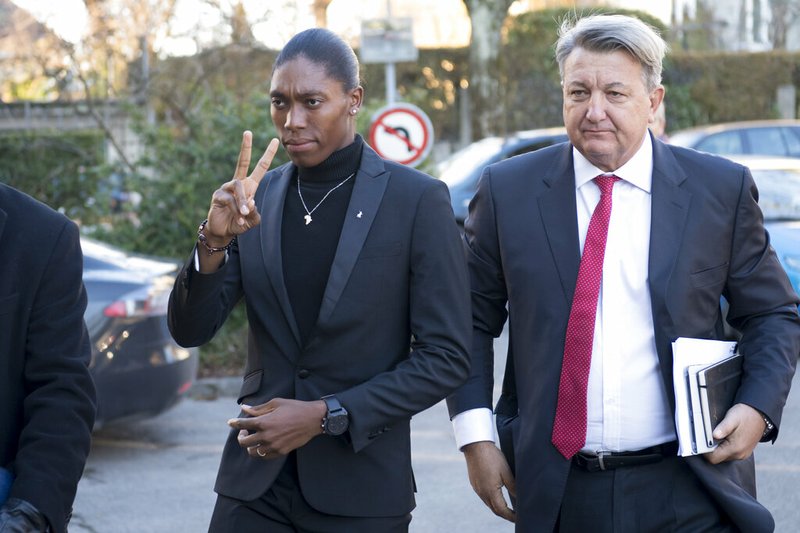LAUSANNE, Switzerland -- Caster Semenya arrived at the Court of Arbitration for Sport on Monday for a hearing in a landmark case that will challenge science and gender politics.
The two-time Olympic 800-meter champion from South Africa didn't take questions as she arrived at the court, but she flashed her fingers in a "V" shape and smiled as she entered.
The scheduled five-day appeal case is among the longest ever heard by the sports court. CAS secretary-general Mathieu Reeb expressed hope for a decision by the three-judge panel by the end of March.
The IAAF has proposed eligibility rules for athletes with hyperandrogenism, a medical condition in which women may have excessive levels of male hormones such as testosterone. Semenya wants to overturn those rules.
IAAF president Sebastian Coe was also at the court.
"The core value for the IAAF is the empowerment of girls and women through athletics," Coe said. "The regulations that we are introducing are there to protect the sanctity of fair and open competition."
The IAAF wants to require women with naturally elevated testosterone to lower their levels by medication before being allowed to compete in world-class races from 400 meters to one mile.
Reeb said the case was "unusual and unprecedented" and said the decision "will be important."
Norman Arendse, a lawyer for Semenya, called it "a highly confidential process."
NW News on 02/19/2019

